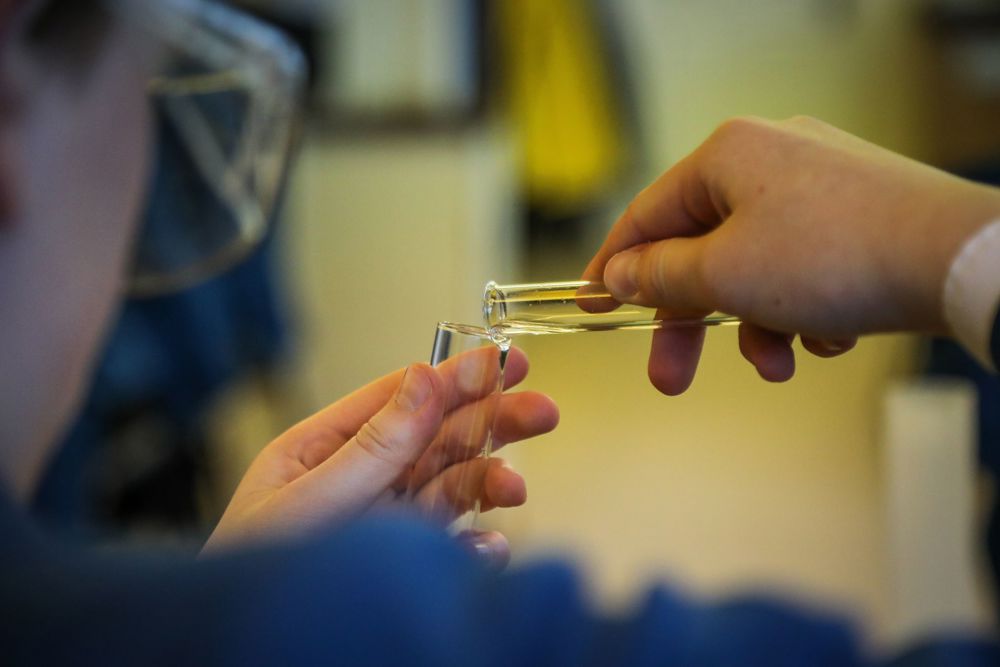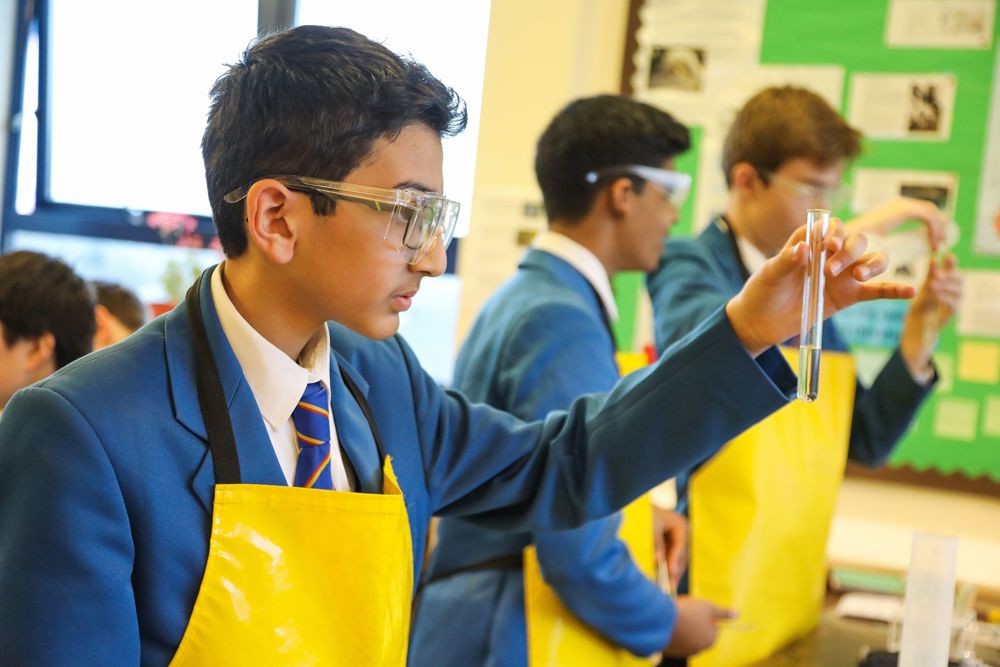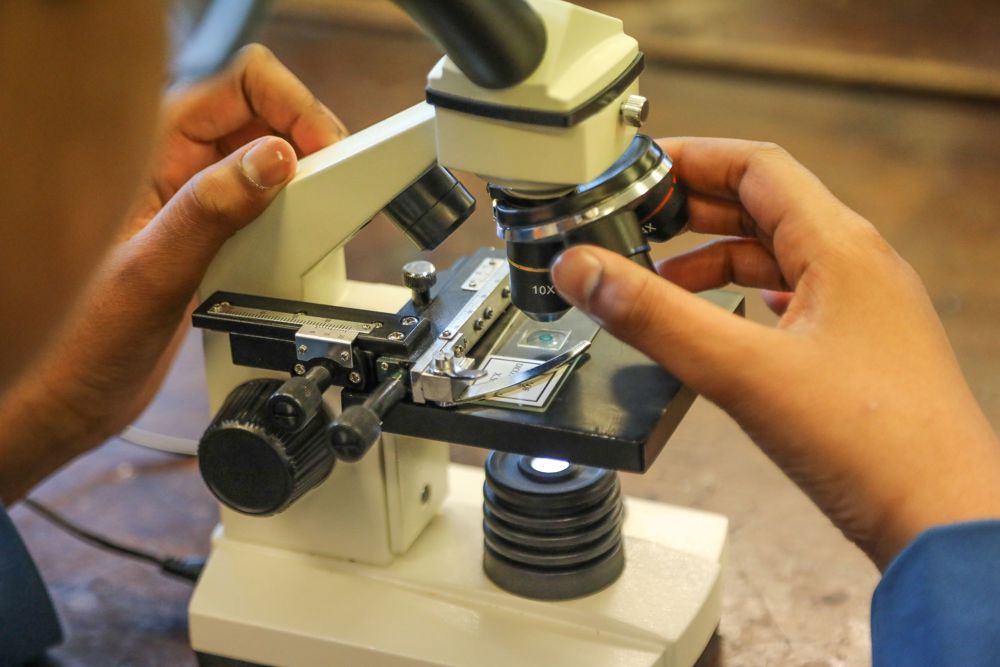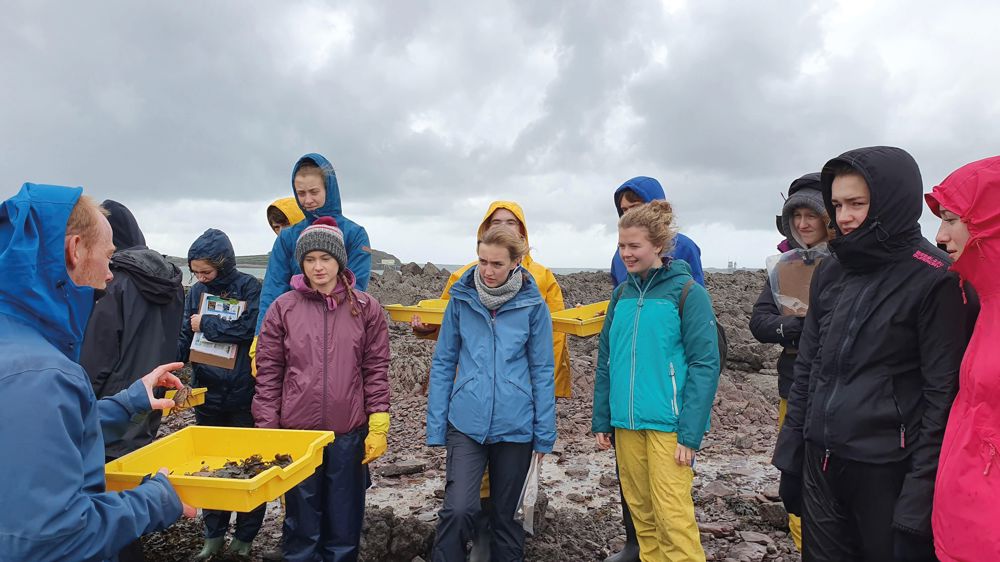
Biology
Guided by dedicated teachers who are experts in their subject, Biology students at Rich’s develop high levels of core knowledge and understanding, analysing and evaluating the way in which scientific theories and breakthroughs affect our society and the economy.
Practical lessons and lab skills are introduced from the start of Year 7, with students expanding their fieldwork skills throughout the Key Stages to further promote their understanding of the natural environment. Pupils work as individuals and in groups to encourage collaborative learning, with a focus on independent, critical thinking and developing intellectual curiosity.

Key Stage 3
Year 7 students are taught a general Science syllabus, before studying Biology, Chemistry and Physics as separate disciplines from Year 8. Pupils in Years 8 and 9 are taught Biology for two periods a fortnight and have homework set once a week, with tasks including experiment write ups, research, questions or revision. There are regular topic tests and an end of year written examination.
Year 8
Microbes and disease. Food and diet. Plants and photosynthesis. Agriculture. Animal behaviour, including a zoo visit.
Year 9
Human Biology up to GCSE level: Digestion. Respiration and breathing. Blood and circulation.

Key Stage 4
Pupils study the AQA GCSE Biology Specification and are taught for four periods a fortnight in Year 10 and five periods a fortnight in Year 11. Homework includes a range of tasks including past paper questions, experiment write ups and research. Learners are also set revision activities for regular tests. Students complete 12 required practicals, with the final GCSE grade based on the written final examinations. A range of question types are used, including multiple choice, short answer and those requiring extended responses.
Year 10
Cells. Cell division. Metabolism and transport in cells. Plant tissues and organs. Photosynthesis. Plant disease. Health issues. Ecology, including fieldwork usually carried out at WWT Slimbridge.
Year 11
Biodiversity and human interactions with ecosystems. The nervous system. Homeostasis. Excretion. Plant hormones. Reproduction. DNA and inheritance. Variation and evolution. Genetic engineering and cloning.
Useful Links

Key Stage 5
Students are taught for nine periods a fortnight in Year 12 and ten in Year 13, with homework set every week and regular assessments. Students are expected to extend their learning by reading around the subject out of lesson time, and to attend the A Level Biology fieldtrip at the start of Year 13.
Year 12
Biological molecules. Cells. Animal and plant transport. Exchange systems. Enzymes. Nucleic acids. Classification and evolution. Biodiversity. Disease. Conservation and sustainability.
Year 13
Ecosystems and populations. Nerves and hormones. Communication and homeostasis. Excretion. Plant and animal responses. Photosynthesis. Respiration. Cellular control. Patterns of inheritance. Biotechnology and manipulating genomes. Residential fieldtrip.
Entry requirement
Grade 8 in GCSE Biology or 8-8 double award Combined Science.
Useful Links
Enrichment
Students enjoy regular Biology fieldwork, taking part in trips to sites of scientific interest and carrying out work on the School site. Key Stage 4 pupils visit Slimbridge Wildfowl and Wetlands Trust, and compete in the annual Cheltenham Science Festival FameLab Academy competition. Key Stage 5 pupils visit the Oxford Natural History Museum in Year 12, and enjoy a residential fieldtrip at the start of Year 13; recent locations have included the Orielton Field Study Centre at Pembroke and the Margam Field Studies Centre near Port Talbot. There is a regular lunchtime Biology Clinic for GCSE students, and the Ad Vitam Society also meets at lunchtimes for students interested in careers in medicine, veterinary science and dentistry.
Head of Biology
Rebecca Zurick [email protected]